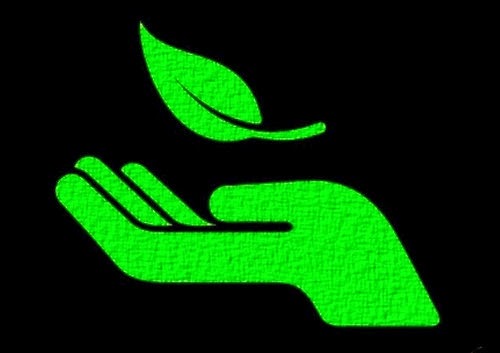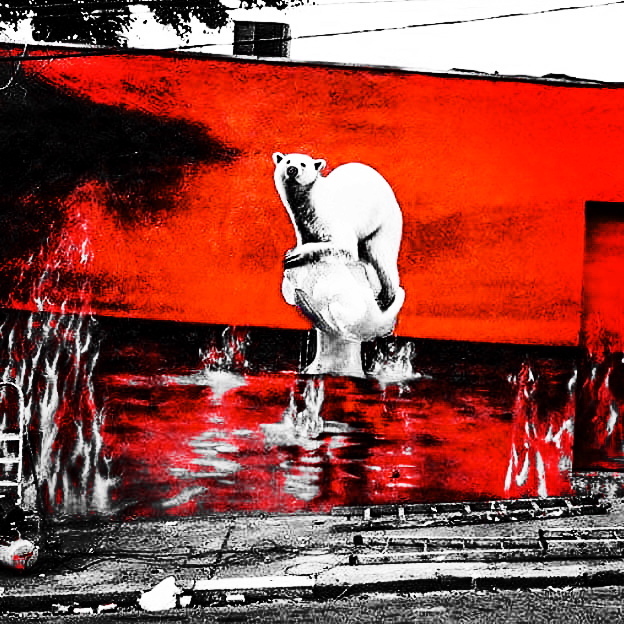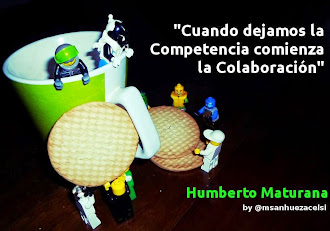100% Sustainably sourced – how to make it happen?
100% Sustainably sourced how to make it
by WWF via wwf.eu CC BY SA
This publication focuses
on one of the most challenging questions in the coming decennia: how
can we feed, house, clothe and transport two billion more people in the
20 - 30 years ahead within the ecological limits of our planet? Today,
in Europe, we are consuming the equivalent of 2.8 planets’ worth of
natural resources, yet we only have one planet. Business as usual is not
an option. Innovative solutions and adequate measures to mitigate the
impact of a growing demand for natural resources are more needed than
ever.
This sense of urgency has brought ACE, the Alliance for Beverage Cartons and the Environment; Unilever, one of the world’s most important suppliers of Food, Home and Personal Care products; and WWF, the Global Conservation organisation, together for a debate
during this year’s edition of the Green Week dedicated to Circular
Economy, Resource Efficiency & Waste that took place in June in
Brussels. The core question: how to make sustainable sourcing happen.
- What do we understand by sustainable sourcing?
- Where does it fit with resource efficiency and the circular economy?
- What can we learn from initiatives to date?
- Where to go next?
100% sustainably sourced – how to make it happen?
With representatives from the industry sector, the EU institutions and
NGOs, ‘100% sustainably sourced – how to make it happen?’ will present
the inside track on how the EU can help businesses source resources
better and more sustainably to contribute to a circular economy. It aims
to recognise the environmental and business case for sustainable
sourcing, raise awareness about the challenges in the sourcing of
sustainable commodities and products and establish the roles for market
tools and policy engagement.
As we look ahead to 2050, questions emerge of how we will feed, house,
clothe and transport two billion more people and still maintain a living
planet. The price we pay for natural resources and raw materials found
in products and the long-term access to them hangs in the balance. Our
shared imperative is ensuring that the raw materials used in these
products are sustainably sourced, reducing their negative impacts on
people and the planet.
“We all need food and basic consumer products. And we all need a healthy
planet. Nobody can solve these challenges alone, but together we can
identify and pursue strategies to do more with less on our finite
planet”, say ACE, Unilever and WWF.
Our economies still rely on a system where the existing business model
favours the linear (take-make-use-discard) model of production and
consumption. But, already today, increasing efficiency can be profitable
for companies and the economy. Sustainable sourcing which respects the
planets limits is not only key to protecting nature and reducing
long-term risk for companies, it is also a way to build a stronger
economy.
ACE, Unilever and WWF ask the EU to develop ambitious principles and
standards for sustainable sourcing. Existing voluntary schemes with high
environmental and social standards could serve as a good basis for the
development of credible standards; and encourage transparency of
sourcing practices by companies operating on the EU market.
The three organisations also ask the EU to use its position as one of
the largest markets in the world to promote policies and strategies that
drive a sustainable management of natural resources worldwide. It
should also support the sustainable and transparent use and trade of
resources and products by promoting responsible consumption.
One way to achieve this is through sustainable sourcing as a
prerequisite to building a resource efficient Europe, one priority
within the context of the Resource Efficiency pillar of the EU2020
strategy - and also a central tenet in the thinking about Circular
Economy on which a Commission communication is expected soon [2]
Quotes:
Tony Long, Director of WWF European Policy Office, said:
“Today in Europe we are consuming the equivalent of 2.8 planets
worth of natural resources and yet we only have one planet. We are
already in serious resource debt. We therefore need the EU to drive the
change to a sustainable management of our planet’s resources before
nature suffers further and people, businesses and the economy are
impacted by increasing prices of raw materials due to resource
scarcity”.
Katarina Molin, Director General of ACE, said:
““Sustainable sourcing of raw materials is a key component of
the circular economy. ACE members have demonstrated through their global
voluntary commitment for a full traceability of the fibers used in
beverage carton production that sustainable sourcing can make perfect
business sense. We are aware that this is an early stage in the
evolution of the concept of sustainable sourcing and that much has still
to be understood better but we believe there is a need to initiate a
broader EU policy dialogue on this important policy topic, which should
play a part in the future development of EU resource policies towards
2020.”
Christiaan Prins, Director of European External Affairs of Unilever, said:
“Unilever is committed to source 100% of its raw materials
sustainably by 2020. By end last year 48% of our agricultural raw
materials were sustainably sourced and we had engaged with 570,000
smallholder farmers. Good progress, but more to do. The industry needs
to explore with other stakeholders how sustainably sourced materials can
become the market standard, rather than the niche they currently are.
Adequate legislation, in support of sustainable production and
consumption, has an important role to play”.
About WWF
WWF is one of the worlds’ largest and most respected
independent conservation organizations, with over 5 million supporters
and a global network active in over 100 countries. WWF's mission is to
stop the degradation of the earth's natural environment and to build a
future in which humans live in harmony with nature, by conserving the
world's biological diversity, ensuring that the use of renewable natural
resources is sustainable, and promoting the reduction of pollution and
wasteful consumption.
Source: http://www.wwf.eu/?222611/100-sustainably-sourced--how-to-make-it-happen
http://www.wwf.eu/media_centre/publications/?225330
CC BY SA
For further information:
Annette Requardt
Communications Manager
ACE AISBL
Annette.Requardt@beveragecarton.eu
+32 489 84 89 50
www.beveragecarton.eu
Marc Potma
Media Relations Manager
Unilever
Marc.potma@unilever.com
+31 6 1137 5464
www.unilever.eu
Alba Málaga
Communication and New Media Officer
WWF European Policy Office
amalaga@wwf.eu
+32 484641060
www.wwf.eu
100% Sustainably sourced how to make it
by WWF via wwf.eu CC BY SA
This publication focuses on one of the most challenging questions in the coming decennia: how can we feed, house, clothe and transport two billion more people in the 20 - 30 years ahead within the ecological limits of our planet? Today, in Europe, we are consuming the equivalent of 2.8 planets’ worth of natural resources, yet we only have one planet. Business as usual is not an option. Innovative solutions and adequate measures to mitigate the impact of a growing demand for natural resources are more needed than ever.
This sense of urgency has brought ACE, the Alliance for Beverage Cartons and the Environment; Unilever, one of the world’s most important suppliers of Food, Home and Personal Care products; and WWF, the Global Conservation organisation, together for a debate
during this year’s edition of the Green Week dedicated to Circular
Economy, Resource Efficiency & Waste that took place in June in
Brussels. The core question: how to make sustainable sourcing happen.
- What do we understand by sustainable sourcing?
- Where does it fit with resource efficiency and the circular economy?
- What can we learn from initiatives to date?
- Where to go next?









































0 comentarios :